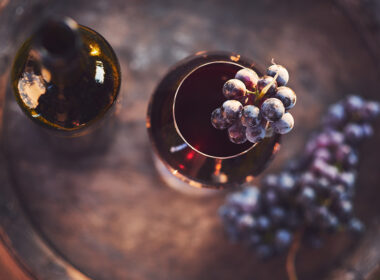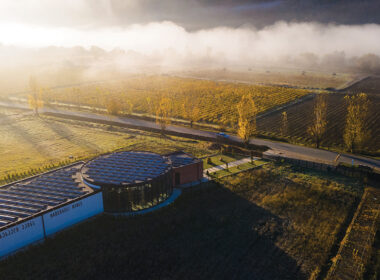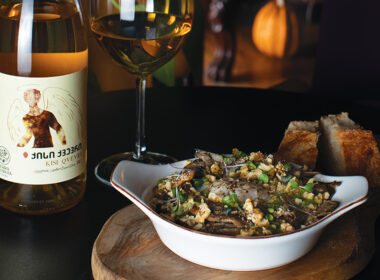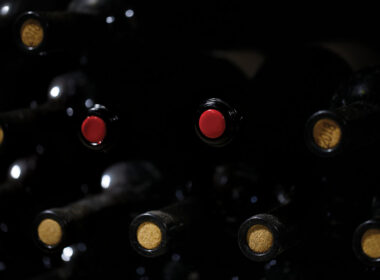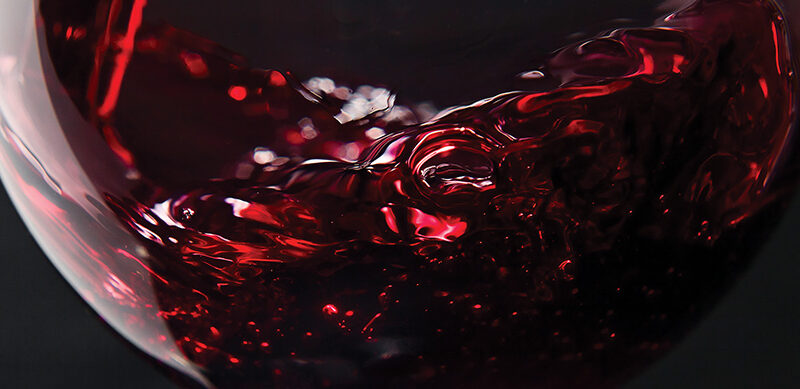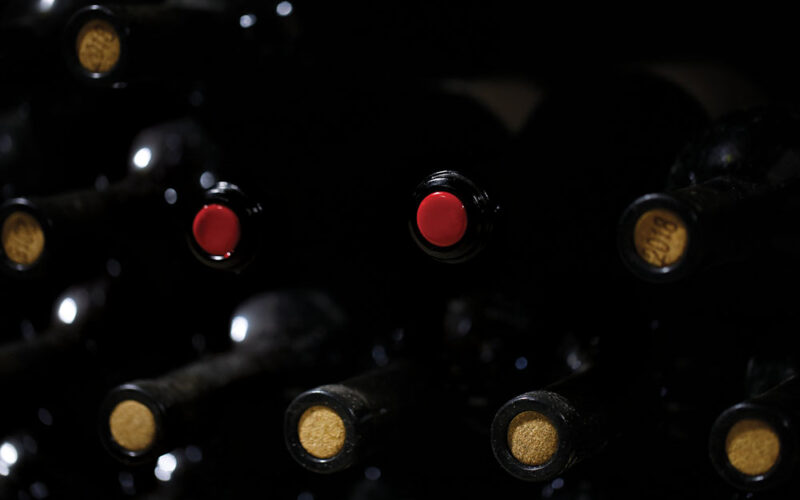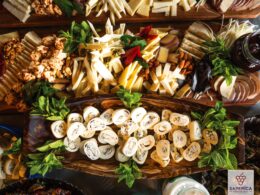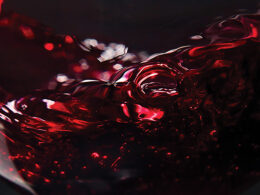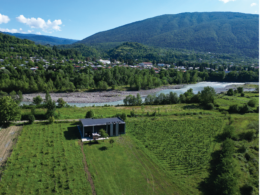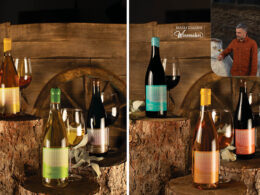| By Nana Jojishvili |
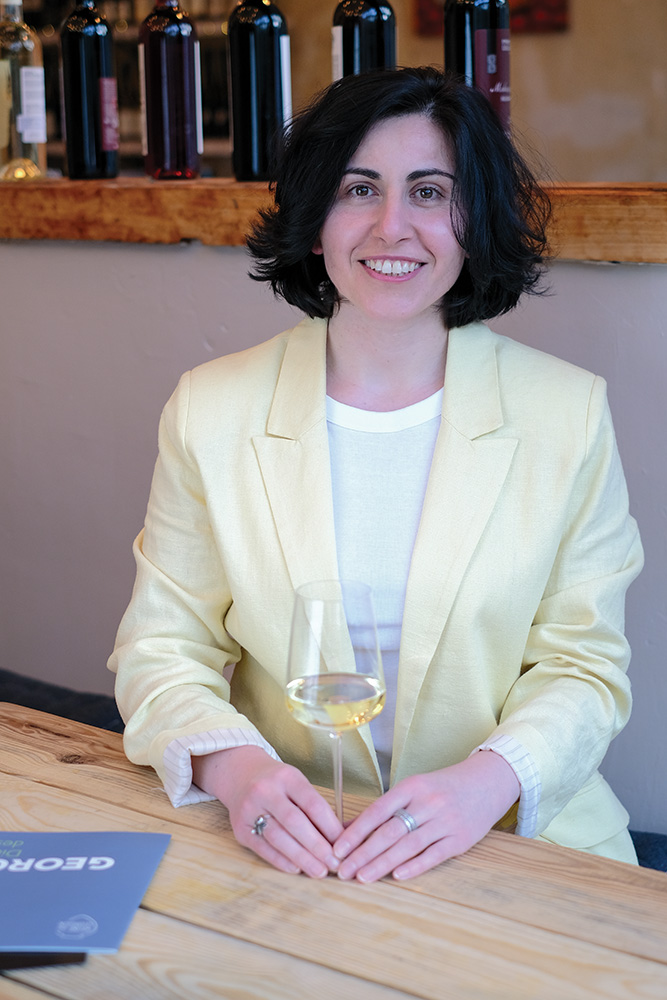
I contacted Andre Baader for an interview in Batumi, Georgia, where he lives with his wife, Carla Baader. Last year, Andre and Carla visited Georgia along with thirteen Brazilian sommeliers. Since then, they have been helping Georgian companies with wine exports to Brazil.
Andre and Carla have traveled to nearly a hundred countries to taste wines from different countries and styles. They also came to Georgia specifically for wine. “It is difficult to get information about Georgian wine from books, and even harder to taste it, so the best opportunity was to come to Georgia and taste the wine on-site.
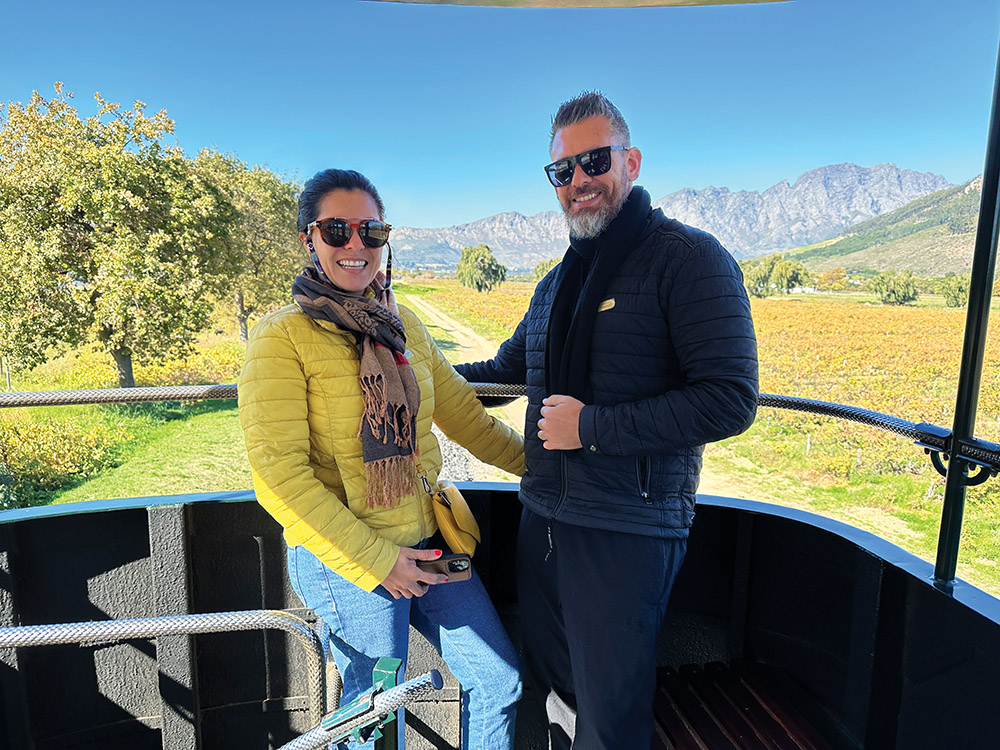
Andre Baader
Professional Chef
Wine Sommelier
Wine Influencer
@locoporvino
Our visit to Georgia was inspired by the success of Georgian wine at ProWine São Paulo 2024 in Brazil, where the Georgian stand attracted the most visitors. Brazilian wine professionals also showed great interest, and several joined us on the trip. The goal was to experience Georgian winemaking traditions firsthand—exploring local grape varieties and the qvevri method—so we could later introduce them to Brazilian consumers.”
According to Andre, the import of Georgian wine to Brazil began in 2017. He now works with Wine7, a company that imports Georgian wine as well as wines from around the world. He also notes that demand for Georgian wine is growing in Brazilian restaurants and specialized wine shops, though it has yet to gain traction in supermarkets and hotels. Georgian wine consumers in Brazil include wine enthusiasts and professionals eager to explore wines from new regions, as well as those seeking unique and distinctive selections.
Andre says that in Brazil, Saperavi and Rkatsiteli are the most popular, due to their history, price, and versatility. He also notes that demand for qvevri wines is growing, and Brazilian consumers are increasingly interested in wines made using natural and traditional methods.
“Currently, a large portion of our exports come from major producers, as small producers either don’t use sulfur at all or use only small amounts. Since containers are in transit for 3-4 months, transporting such wines can be somewhat risky.”
Sixty percent of the Brazilian market is dominated by wines from Chile and Argentina, followed by wines from Portugal, Italy, France, Spain, and other countries. Andre notes that the success of Georgian wine in this market heavily depends on investments. “Our goal is to promote Georgian wine, not only in Brazil, but also across South America. At ProWine São Paulo, we are planning a marketing campaign with the companies ‘Askaneli’ and ‘Dugladze,’ involving bloggers and the media. We know that many Georgian wineries are interested in the Brazilian market, but without the support of the National Wine Agency, it will be quite challenging for us to focus on specific wineries as well as to raise awareness of Georgian wine.”
During my research on the Brazilian market, I came across Lorangi Marani, one of whose founders is Lorena F.C. Goncalves. The winery was founded in 2019 and produces wine in limited quantities, with all processes being carried out manually. In addition to ceramic and stainless steel vats, they also have eleven qvevris. The wine is made from local grape varieties. Lorena, together with her Georgian co-founder, also imports wines from small wineries in Kakheti to Brazil, with sales taking place in boutique shops and wine bars.
ანდრე ბაადერს ინტერვიუსთვის საქართველოში, ბათუმში დავუკავშირდი, სადაც მეუღლე კარლა ბაადერთან ერთად ცხოვრობს. ანდრე და კარლა შარშან საქართველოს ცამეტ ბრაზილიელ სომელიესთან ერთად ესტუმრნენ. მას შემდეგ ქართულ კომპანიებს ბრაზილიაში ღვინის ექსპორტში ეხმარებიან.
ანდრემ და კარლამ სხვადასხვა ქვეყნისა და სტილის ღვინოების დასაგემოვნებლად ასამდე ქვეყანაში იმოგზაურეს. საქართველოშიც ღვინის გამო ჩამოვიდნენ.
„წიგნებით ქართული ღვინის შესახებ ინფორმაციის მიღება რთულია, გასინჯვა კიდევ უფრო რთული, ამიტომ საუკეთესო გზა საქართველოში ჩამოსვლა და ღვინის ადგილზე დაგემოვნება იყო.
საქართველოში ჩვენი სტუმრობა ბრაზილიაში ProWine São Paulo 2024-ზე ქართული ღვინის წარმატებულმა მონაწილეობამ განაპირობა, სადაც ქართულ სტენდს ყველაზე მეტი სტუმარი ჰყავდა. დიდი იყო ინტერესი ბრაზილიელი ღვინის პროფესიონალების მხრიდანაც, რომლებთან ერთადაც საქართველოს ვესტუმრეთ. მიზანი ქართული მეღვინეობის ტრადიციის, ადგილობრივი ყურძნის ჯიშებისა და ქვევრში ღვინის დაყენების მეთოდის გაცნობა იყო, რათა შემდეგ ეს ყველაფერი ბრაზილიელებისთვისაც მოგვეყოლა.“
ანდრეს თქმით, ქართული ღვინის იმპორტი ბრაზილიაში პირველად, 2017 წელს განხორციელდა. ახლა კომპანია Wine7-თან თანამშრომლობს, რომელიც ბრაზილიაში ქართული ღვინის იმპორტიორი გახლავთ.
ამბობს იმასაც, რომ ბრაზილიის რესტორნებსა და ღვინის სპეციალიზირებულ მაღაზიებში ქართულ ღვინოზე მოთხოვნა მზარდია, რასაც ჯერჯერობით ვერ ვიტყვით სუპერმარკეტებსა და სასტუმროებზე. რაც ეხება ქართული ღვინის მომხმარებლებს – ესენი ღვინის ენთუზიასტები და ღვინის პროფესიონალები არიან, რომლებსაც ახალი რეგიონის ღვინოების აღმოჩენა სურთ; ასევე მომხმარებლები, რომლებიც განსაკუთრებულ და საინტერესო ღვინოებს ეძებენ. ანდრე ამბობს, რომ ბრაზილიაში, ყველაზე პოპულარული საფერავი და რქაწითელია, გამომდინარე მათი ისტორიიდან, ფასიდან და უნივერსალურობიდან. იმასაც აღნიშნავს, რომ მოთხოვნა ქვევრის ღვინოების მიმართ მზარდია და ბრაზილიელი მომხმარებელიც სულ უფრო მეტად ინტერესდება ბუნებრივი და ტრადიციული მეთოდით დამზადებული ღვინოებით.
„ამ ეტაპზე, ჩვენ მიერ განხორციელებული ექსპორტის დიდი ნაწილი მსხვილ მწარმოებლებზე მოდის, რადგან მცირე მწარმოებლები გოგირდს ან საერთოდ არ იყენებენ, ან მხოლოდ მცირე რაოდენობით. კონტეინერები 3-4 თვემდე გზაშია, ამიტომ ასეთი ღვინოების ტრანსპორტირება ცოტა სარისკოა.“
ბრაზილიის ბაზრის 60%-ს ჩილეს და არგენტინის ღვინოები იკავებს, რასაც პორტუგალია, იტალია, საფრანგეთი, ესპანეთი და დანარჩენი ქვეყნები მოჰყვება. ანდრე ამბობს, რომ ამ ბაზარზე ქართული ღვინის წარმატება დიდად არის დამოკიდებული ინვისტიციებზე.
“ჩვენი მიზანი ქართული ღვინის პოპულარიზაციაა არა მხოლოდ ბრაზილიაში, არამედ სამხრეთ ამერიკაში. ProWine São Paulo-ზე კომპანიებთან “ასკანელი” და “დუგლაძე” მარკეტინგულ კამპანიას ვგეგმავთ ბლოგერებისა და მედიის მონაწილეობით. ვიცით, რომ ბრაზილიის ბაზრით ბევრი ქართული მარანია დაინტერესებული, მაგრამ ღვინის ეროვნული სააგენტოს მხარდაჭერის გარეშე ნამდვილად გაგვიჭირდება ფოკუსირება კონკრეტულ მარნებზე, ისევე, როგორც ქართული ღვინის ცნობადობის ამაღლებაზე მუშაობა.”
ბრაზილიის ბაზარის კვლევისას Lorangi Marani აღმოვაჩინე, რომლის ერთ-ერთი დამფუძნებელი ლორენა გონკალვესია. მარანი 2019 წელს დაფუძნდა. ღვინოს ლიმიტირებული რაოდენობით აწარმოებენ. ყველა პროცესი ხელით იმართება. კერმიკისა და უჟანგავი ფოლადის ავზების გარდა, თერთმეტი ქვევრიც აქვთ. ღვინოს ადგილობრივი ყურძნის ჯიშებისგან აყენებენ. ლორენა, ქართველ თანადამფუძნებელთან ერთად, კახეთიდან მცირე მარნების ღვინოების იმპორტსაც ახორციელებს ბრაზილიაში, რომელთა რეალიზაცია ბუტიკურ მაღაზიებსა და ღვინის ბარებში ხდება.

